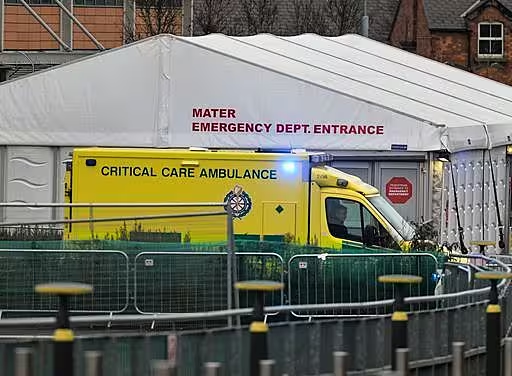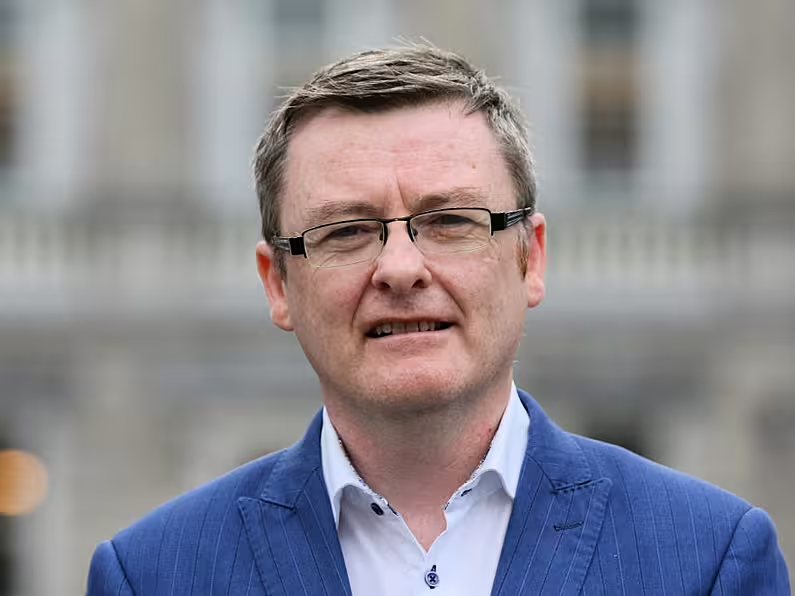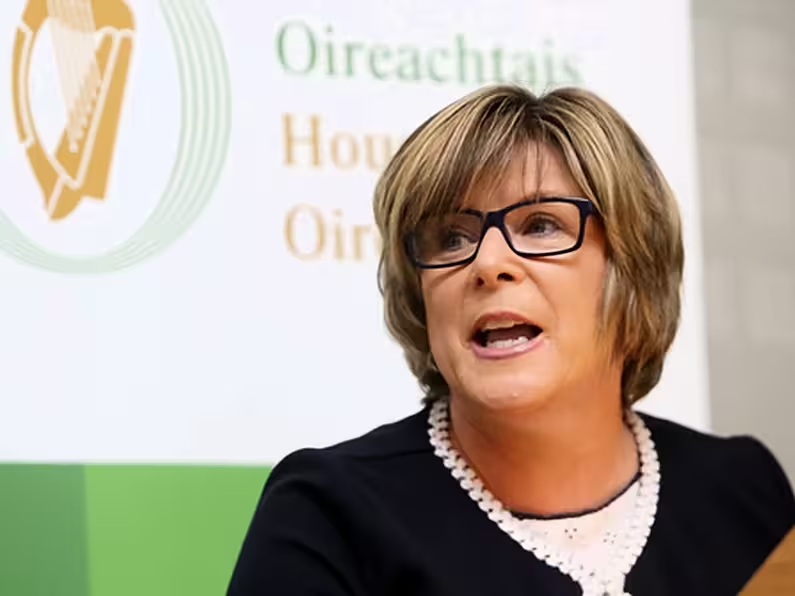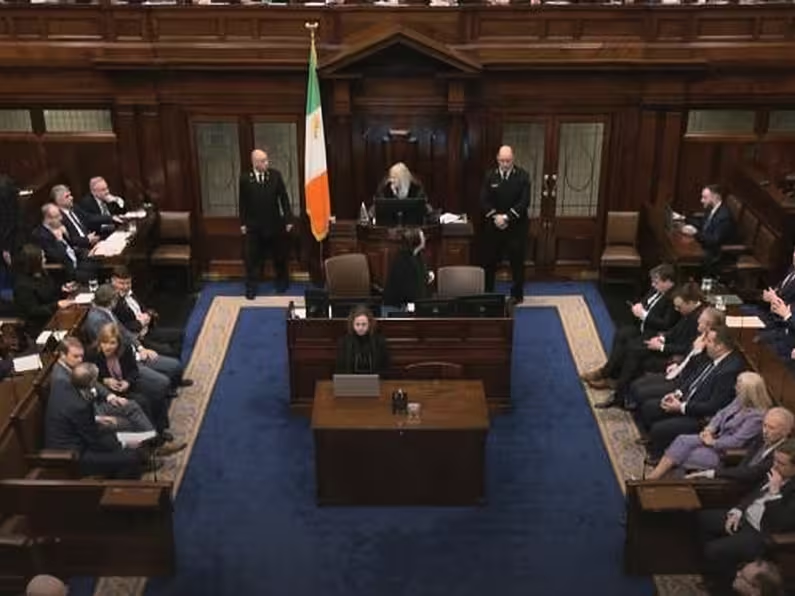James Cox
While huge leaps and bounds have been made in terms of coronavirus in relation to vaccination and control measures, there are still plenty of unknowns, particularly when it comes to long Covid.
Many Irish patients are suffering the effects of acute Covid infection months on.
Professor Liam O'Mahony, of APC Microbiome Ireland, a SFI research centre at University College Cork, is one of the people researching the long term impact of Covid-19.
He was part of the first study to show that patients with long Covid have significant and demonstrable disturbances in immune signalling networks, up to nine months following hospital discharge.
Prof O'Mahony told BreakingNews.ie: “It was interesting that the pattern of change was showing that there was still some type of immune activation, or immune repair, that is ongoing in patients for a really long time after hospital discharge.”
Community survey
He thinks a broader community survey of people suffering with long Covid in Ireland is necessary, including those who did not end up in hospital.
“One of the things we’re hoping to do now, we’ve put in an application to look at more of the community acquired Covid in those who didn’t necessarily need hospitalisation but who still ended up getting long Covid, to look at whether these mediators are still elevated in that group.
“There’s no doubt that long Covid is a real consequence of having Covid-19 and the numbers of people who get it is something we’re still trying to figure out, along with the reasons and molecular basis for why people get it. The fact it exists is clear, there’s no doubt.
“It is a percentage of people who get Covid, it’s not insignificant.”
Prof O'Mahony thinks a lot of long Covid patients feel overlooked or forgotten, adding that this is something that needs to be addressed.
“Many people have been impacted in many ways of course, it’s not just about long Covid, but our thinking really needs to move to how do we care for those who have been hurt by the pandemic, long Covid sufferers really need our attention.
“It’s not unusual to get a post viral infection that leads to a fatigue type illness afterwards. This is not the first time we’ve seen that, but perhaps it’s just that the numbers are so big now that we’re really noticing it. I think the research in the area will be hugely valuable as well for other types of infection.
“At the moment we would say this is an indicator of something that hasn’t returned back down to normal levels. Whether it’s the immune system itself that is causing the symptoms itself, we’re not sure, so it’s more indicating that something is not right.”
Prof O'Mahony explained that elevated levels of immune activation in long Covid patients could point to problems with other areas such as the metabolism.
“The bigger picture we would look at is your metabolism, your immune system, and your microbiome, are very much interlinked with each other.
“If we can see something that is still active in your immune system that could indicate that there’s a problem in your metabolism or microbiome which is causing the symptomatology.
“What we’re trying to do at the moment is integrate the immunological findings with metabolic findings and with microbiome findings, the bacteria that are in us and on us, because you can’t really separate one from the other.
“In the end it may just be that the immune system measures we’re measuring are indicating a problem in one of these other areas, and it is through targeting the metabolism or the microbiome that you may see the effect or improve symptomatology rather than directly targeting the immune system.
“That’s really the next step for us is to try and pull it apart and see what we can intervene with to make a difference.”
Prof O'Mahony hopes long Covid research and treatment will continue to progress, although he feels the continued strain on the healthcare system may delay things.
“Unfortunately the healthcare system has been decimated The waiting lists are enormous, they’re always big, but now it’s terrible.
“It’s a system where with the best will in the world this is going to be difficult to implement in a way that will be really meaningful for patients with long Covid.”
Prof O'Mahony and colleagues have designed a questionnaire which they hope to send out to people who have suffered with long Covid, to learn from their collective experience.
“With patients' representatives and with clinicians, ourselves the researchers, we’ve submitted a questionnaire for ethical approval that we’re going to circulate nationally to try and connect with and get a measure of what is the level of long Covid in the community and how much it is impacting people.”
Webinar
“In early September we will have a webinar specifically for patients to engage with them and to give them the opportunity to ask us questions,” he added.
“That’s the way we’re moving forward, hand-in-hand with patients, to try and figure out. This is a unique thing that hasn’t happened before, the patients are engaged with us and saying ‘look, here are my symptoms, this is what the triggers are’.
“The research agenda and the clinical response to managing the symptoms is really being worked out hand-in-hand with the patients’ involvement, so this is really fantastic. The patients are unbelievably engaged.”
He hopes the research will result in “changes both from a dedicated long Covid clinic point of view but also the research agenda”.
“We want to get an honest appreciation within the community, not just with hospitalised patients but really everybody.
“How are you? How long ago did you have your acute disease? What are you feeling today? We're rying to get a really unbiased assessment of that within the Irish community.
How are people suffering? What do they need?
“We are restricting this to Ireland because these surveys can go international, and we really want Irish people to tell us what has been the consequence of Covid for your health?
“Long Covid is in its most simplistic meaning, that you don’t return to your base line health and fitness post infection. That can mean many things for many people.
“Biologically it is also very different depending on the symptomatology. Being chronically out of breath may be very different to those suffering with fatigue or brain fog. We don’t know but possibly it is.
“The first step is to get this unbiased evaluation of what is out there. How are people suffering? What do they need?
“In the questionnaire we also have those kinds of questions. What do you think you need us to do to help you?
“Ethics usually takes a few weeks, and then we hope to get it out there so probably in September some time we’ll have some top line assessments.”

Strain on the healthcare system has led to delays in the treatment of long Covid.
Prof O'Mahony explained that research into long Covid will help to treat patients in the short term and the long term, as it will help with treatments for other diseases in the future.
“Many people improve with time, which is very reassuring, but even those who are really improving, they’re improving slowly, and it can take months.
“We’re only in the second year of this pandemic, so we don’t know how long it will really take for someone to recover fully.
“Some people definitely have symptoms that are going on for nine-12 months now, post infection.
“It absolutely feeds back into our pandemic proofing of the population for the future because if we figure this out, and we know why it is that people get sick form these kinds of diseases, just at a basic level, then when a new virus comes along instead of shutting down society you can perhaps give somebody something that will make sure even if they get infected they will not have long term consequences and a severe disease.
“This type of research will really be fundamental to pandemic proofing us for the future.”











